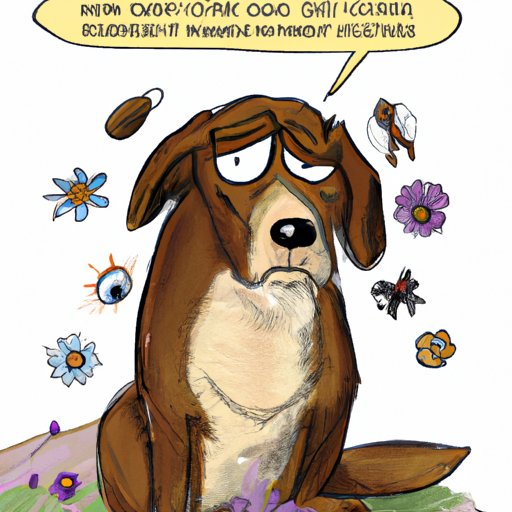Introduction
You adore your furry friend. Their wagging tail, playful barks, and their unmatched loyalty make them an integral part of your family. But sometimes, you may notice signs of discomfort in your dog. It could be excessive scratching, red eyes, or an upset stomach. These symptoms might be signs of allergies. Like humans, dogs can also be allergic to a variety of things.
Understanding Dog Allergies
When your dog’s immune system mistakenly identifies a substance (allergen) as harmful, it can result in an allergic reaction. The allergens can be in their food, the environment, or even from insects. Let’s dive deeper into the common types of allergies in dogs.
Food Allergies
Just as some people can’t tolerate lactose or gluten, some dogs can be allergic to certain types of food. Common food allergens for dogs include:
- Dairy products
- Beef
- Chicken
- Eggs
- Corn
- Wheat
- Soy
Some dogs might also be allergic to certain fruits and vegetables. If you suspect a food allergy, it’s crucial to consult with your vet. They can help identify the allergen and advise on suitable dietary changes.
Environmental Allergies
Environmental allergens can be indoor or outdoor. These include:
- Pollen from trees, grass, and flowers
- Mold spores
- Dust mites
- Dander from other animals
Your dog can inhale these allergens, or they can come into contact with their skin. Regular grooming and keeping your home clean can help manage these allergies.
Flea Allergy Dermatitis
Some dogs are allergic to flea bites. Even a single bite can result in severe itching and inflammation. The best way to prevent this is by keeping your dog and its environment free from fleas.
Recognizing Symptoms of Allergies
Here are common signs that your dog might be suffering from allergies:
- Excessive scratching or licking
- Red, inflamed skin
- Chronic ear infections
- Sneezing
- Vomiting or diarrhea (usually food allergies)
- Swelling of the face, ears, lips, eyelids, or earflaps
Managing and Treating Dog Allergies
The best way to manage your dog’s allergies is by identifying and avoiding the allergens. However, this isn’t always possible. Your vet might prescribe medications to control the symptoms. Allergy shots, special diets, and supplements can also be beneficial.
| Treatment Type | Examples |
|---|---|
| Medication | Antihistamines, Steroids |
| Special Diets | Hypoallergenic dog foods |
| Supplements | Omega-3 fatty acids |
FAQ
Q: Can dogs be allergic to humans?
A: Yes, dogs can be allergic to human dander, just like some people are allergic to pet dander.
Q: Can a dog suddenly develop allergies?
A: Yes, dogs can develop allergies at any age, though they are most commonly noticed when the dog is between one and three years old.
Q: How can I soothe my dog’s allergy symptoms?
A: Regular grooming, keeping your home clean, and using hypoallergenic dog products can help soothe your dog’s allergy symptoms.
Remember, your dog relies on you for their health and well-being. By understanding what your dog is allergic to, you can help them live a comfortable and happy life.



